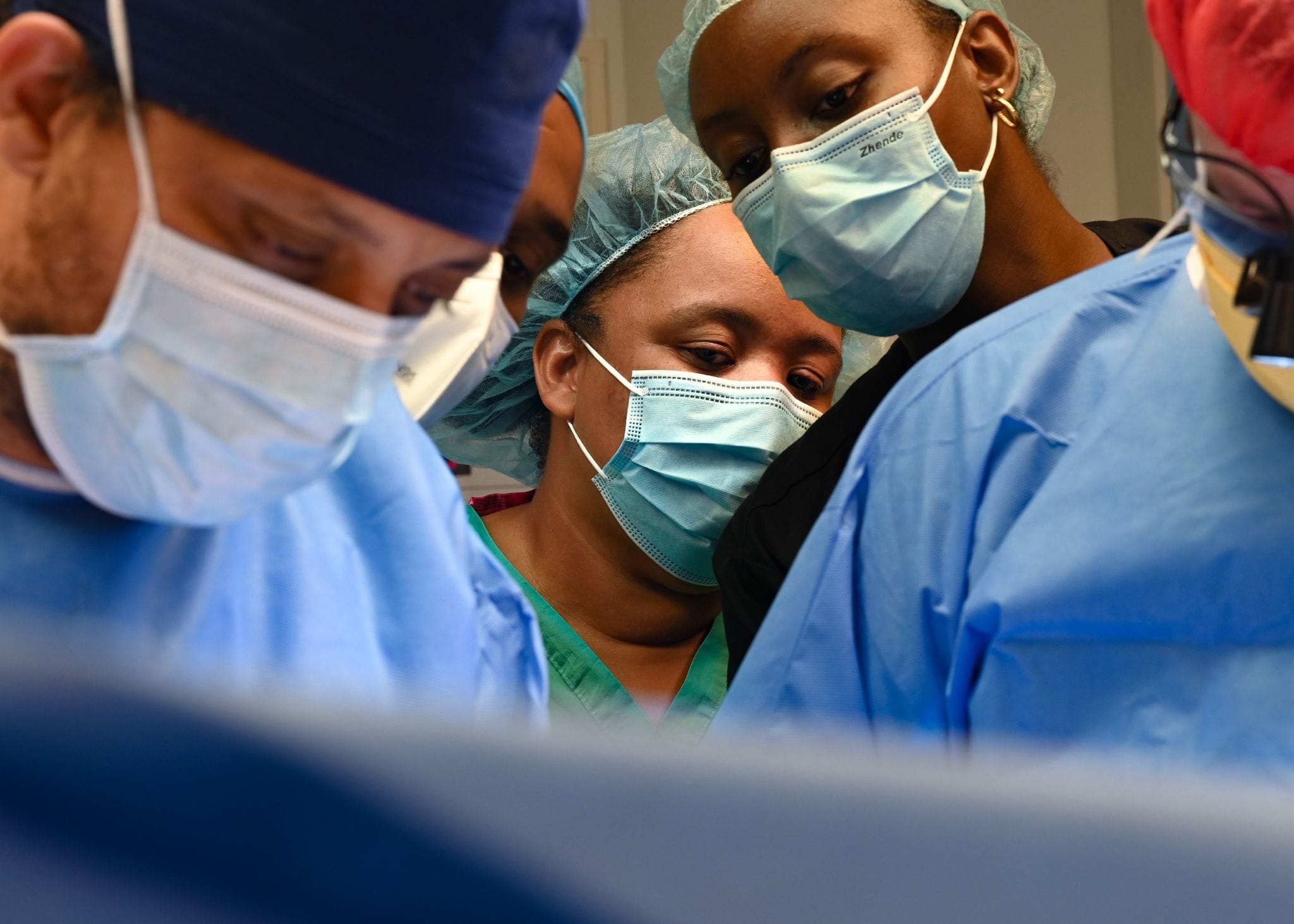At a hospital, a male nursing student waits outside the maternity ward — prepared to put textbook knowledge into practice, but as patients come and go, he ends the day having seen only one, if so lucky.
For nursing students to observe or participate in a patient’s care, the patient’s consent is required. But when Jefferson Gabriel, 23, began his clinical maternity rotation — a compulsory part of nursing training — he found that the doors to learning were often closed to him.
“I try not to be [passionate], but honestly, I become very passionate when I don’t learn as much as I would have wanted to,” Gabriel told St. Lucia Times, reflecting on his experience.
Gabriel is part of a small but growing group of men entering nursing. He chose the profession after watching his father endure a serious medical crisis when he was young. Nursing, for him, was a way to gain the skills to help others in similar situations and to build a life around caring.
Realities of restrictive gender norms
Nursing students in Saint Lucia complete clinical rotations throughout their four-year programme, moving through wards that expose them to different types of care, from bedside assistance and patient hygiene to more advanced procedures.
“For the maternal rotation, I had a terrible experience,” Gabriel said. “It’s about the person’s privacy, and that needs to be taken into consideration,” he said, noting that some women are uncomfortable receiving care from a man — for personal or religious reasons. “But unlike other wards where I went through the full rotation and learnt as much as possible, on the maternity ward, throughout the entire day, I’d see maybe one patient. The majority just did not want me to participate in their care.”
Unlike his female peers, Gabriel said, “The only time I got to perform a skill was actually bathing the baby.”

Tradition and law
Sister Solomon, a nurse with over three decades of experience, told St. Lucia Times she has never encountered a male midwife in her career.
“I’m not aware of anything that would prevent them,” she said. “The only thing I know is that the [Registration of Nurses and Midwives Act] refers to a female — it doesn’t mention males.”
Still, Solomon believes skill and compassion, not gender, define a good nurse. “I’ve worked with male nurses who provide excellent care,” she said. “I’ve also been cared for by them myself. The level of attention, the gentleness, the professionalism — it’s something I’ve always admired.”
She recalls an emergency when her own mother was admitted to hospital. “It was a male nurse who took care of her,” she said. “I just sat there watching how he moved — how attentive he was. It reminded me that care really depends on the individual, not whether they’re male or female.”

Shifting perspectives
Gabriel acknowledges that biases within the profession go both ways. “There are nurses who don’t seem to care, and others who love what they do,” he said. “I always advocate for the ones who have that passion — male or female.”
Although he never intended to specialise in maternity care, he believes men can have deeply meaningful reasons for pursuing that field. “Some might have seen a mother or sister suffer during childbirth and want to be part of the solution,” he said. “Others may simply find the process of bringing new life into the world fascinating. It could even be a religious thing — seeing it as part of God’s creative work.”
Asked his thoughts on women’s discomfort possibly being linked to concern related to trauma or fear of violation, he shed this light; “For most of us, it’s work,” Gabriel said. “You don’t get aroused or anything like that — it’s professional. They would have seen it so often, it’s just part of what they do.”
Gabriel said he’s even observed a caesarean section and describes the experience as “amazing.”
A changing landscape
Gender imbalance in nursing extends beyond the maternity ward. Today, the vast majority of nurses in Saint Lucia and globally are women. In Gabriel’s class of more than 30 students, only five are male.
Still, there are signs of change. According to Sister Solomon, more people are entering the field overall, including men. Social media has also helped shift perceptions, with male nurses sharing their experiences and challenging stereotypes that once made their presence taboo.

Beyond the ward
For Gabriel, nursing remains a calling — but his vision for the future has evolved. Initially drawn to the operating theatre and anaesthesia, he now hopes to move into health education, where he can advocate for greater awareness and understanding — both among patients and within the profession.
That path, he says, allows him to serve his community while spending more time with family — and perhaps, to help shift the conversation about what care looks like, and who gets to give it.




That was a great article
Why did the reporter interview only one mail nurse? As much as he may have come with the story, she could have gotten the perspective of others. One person’s experience may be because of his or her own fault and not necessarily a general situation across the board. I believe that greater effort could have been made to share more perspective within this article. Hope the guy gets the fame he is seeking.
Thank you Nurse Gabriel do not give up hope I am a nurse and would rather be cared for my my male collegues because of the caring nature they are so much more attentive to our needs
Historically, most obstetricians and or gynecologists were men. Nurses need to advocate for change to the Registration of Nursesand Midwives act.
Great job on bringing some great reads to local news – both educational and encouraging people to expand their thinking. This article was refreshing and insightful. It thoughtfully explored the often-overlooked topic of male nursing, shedding light on both the challenges and contributions of men in the profession. Thanks for this.
Thanks for publishing this article as it definitely has ignite discussions in homes, groups and among professional about our stereotyping of roles.
Hopefully, it shifts the dial in society in general.
More such open, challenging articles need to be published.
Thanks for publishing this article as it definitely has ignite discussions in homes, groups and among professional about our stereotyping of roles.
Hopefully, it shifts the dial in society in general.
More such open, challenging articles need to be published.
Was touch by this.but on the other hand I don’t understand we women go to see male doctors.so my question would be what is the difference ? Going to a male doctor or having a male nurse .I would rather a male ,because some of our sisters we expect to understand or just maybe be patient with us because we believe they are women like us.They are the ones who treat us the worst. I hv had that experience am sure if it was a male he would hv had a little more compassion. So my brother do your best God will bless your efforts and raise you higher.
I did my maternity rotation with STN Gabriel and I know what he and my other male collegues went through. I am female and i also found challenge in experiencing a delivery. I got to see it just once. We had to get permission from the mother and a certain number of health care workers must be present and at least two students. And imagine our group was a large group so it was about luck and chance. I comment my collegue on his bravery.